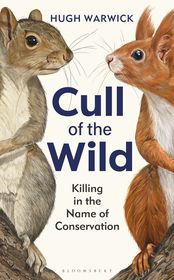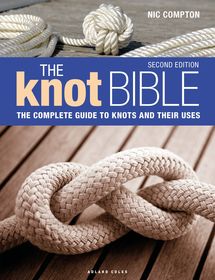
Cull of the Wild
Killing in the Name of Conservation
-
13% KEDVEZMÉNY?
- A kedvezmény csak az 'Értesítés a kedvenc témákról' hírlevelünk címzettjeinek rendeléseire érvényes.
- Kiadói listaár GBP 18.99
-
9 072 Ft (8 640 Ft + 5% áfa)
Az ár azért becsült, mert a rendelés pillanatában nem lehet pontosan tudni, hogy a beérkezéskor milyen lesz a forint árfolyama az adott termék eredeti devizájához képest. Ha a forint romlana, kissé többet, ha javulna, kissé kevesebbet kell majd fizetnie.
- Kedvezmény(ek) 13% (cc. 1 179 Ft off)
- Kedvezményes ár 7 893 Ft (7 517 Ft + 5% áfa)
Iratkozzon fel most és részesüljön kedvezőbb árainkból!
Feliratkozom
9 072 Ft

Beszerezhetőség
A kiadónál véglegesen elfogyott, nem rendelhető. Érdemes újra keresni a címmel, hátha van újabb kiadás.
Why don't you give exact delivery time?
A beszerzés időigényét az eddigi tapasztalatokra alapozva adjuk meg. Azért becsült, mert a terméket külföldről hozzuk be, így a kiadó kiszolgálásának pillanatnyi gyorsaságától is függ. A megadottnál gyorsabb és lassabb szállítás is elképzelhető, de mindent megteszünk, hogy Ön a lehető leghamarabb jusson hozzá a termékhez.
A termék adatai:
- Kiadó Bloomsbury Wildlife
- Megjelenés dátuma 2024. március 28.
- Kötetek száma Hardback
- ISBN 9781399403740
- Kötéstípus Keménykötés
- Terjedelem304 oldal
- Méret 216x135 mm
- Nyelv angol 0
Kategóriák
Hosszú leírás:
LONGLISTED FOR THE WAINWRIGHT PRIZE FOR WRITING ON CONSERVATION
Investigating the ethical and practical challenges of one of the greatest threats to biodiversity: invasive species.
Across the world, invasive species pose a danger to ecosystems. The UN Convention on Biological Diversity ranks them as a major threat to biodiversity on par with habitat loss, climate change and pollution.
Tackling this isn't easy, and no one knows this better than Hugh Warwick, a conservationist who loathes the idea of killing, harming or even eating animals. Yet as an ecologist, he is acutely aware of the need, at times, to kill invasive species whose presence harms the wider environment.
Hugh explores the complex history of species control, revealing the global movement of species and the impacts of their presence. Combining scientific theory with gentle humour in his signature style, he explains the issues conservationists face to control non-native animals and protect native species - including grey and red squirrels on Anglesey, ravens and tortoises in the Mojave Desert, cane toads in Australia and the smooth-billed ani on the Galapagos - and describes cases like Pablo Escobar's cocaine hippos and the Burmese python pet trade.
Taking a balanced and open approach to this emotive subject, Hugh speaks to experts on all sides of the debate. How do we protect endangered native species? Which species do we prioritise? And how do we reckon with the ethics of killing anything in the name of conservation?
Tartalomjegyzék:
Introduction
Chapter 1: Hedgehogs
Aside: Cane toads
Chapter 2: Residents
Aside: Capercaillie and the pine marten
Chapter 3: Squirrels
Aside: Deer
Chapter 4: Lundy
Aside: Dormice
Chapter 5: Scilly
Aside: Galapagos
Chapter 6: Orkney
Aside: Raccoons
Chapter 7: Minkicide
Aside: Pythons
Chapter 8: Keepers
Aside: Cocaine hippos
Chapter 9: New Zealand
Aside: Scottish wildcat
Chapter 10: Compassionate conservation
Aside: Fortress conservation
Chapter 11: Ethically consistent conservation - a manifesto
Acknowledgements
Further reading
Index






